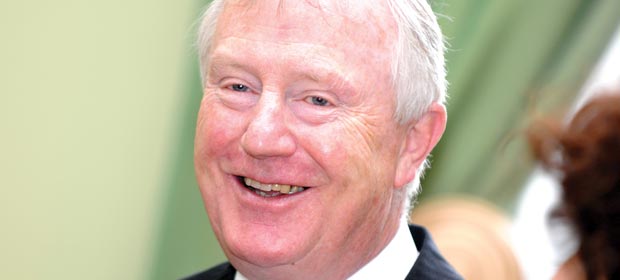The period over Christmas into the New Year was a quiet time for news at home and abroad. When post holiday activity resumed on the January 3, the trolley ‘crisis’ in our hospitals became the big news story and the main political controversy. It soon became clear that this good crisis was not going to be wasted!

An outbreak of flu, the Norovirus, the growing demands of an increasing elderly population, our inability to recruit sufficient staff, inadequate bed capacity, the low uptake of immunization against the flu, especially by the elderly and healthcare workers, were all offered by way of explanation. The latter two explanations were the only ones that were supported by what seemed like credible evidence. By the fifth of January, a promo for the Prime Time programme was promising to ask ‘who is to blame’. The question was asked but, not surprisingly, didn’t produce an answer.
He caused surprise, at least among health service managers, by suggesting that in certain circumstances he would be prepared to replace managers.
The year 2016 was a very bad year for trolley waits in our hospitals. The INMO figures for December alone showed an increase of 29% on the December 2015 figures. One political party spokesperson stated that in recent years there has been a spike in the figures on the first Tuesday in January. He was correct; the peak this year again was on the first Tuesday in January suggesting that factors other than those offered at the time contributed to the ‘annual peak’ on the first Tuesday in January. Over Christmas the balance between need and demand is more likely to favour need than at other times of the year. That said, the figures in January have remained unacceptably high.
The Minister for Health did what is prudent when a gale is blowing; he took what measures he could to limit the damage being done and the system responded by quickly delivering short-term improvement measures.
He caused surprise, at least among health service managers, by suggesting that in certain circumstances he would be prepared to replace managers or management though it was unclear just what he had in mind. Was he seriously suggesting that the trolley crisis was the fault of managers; surely not, or at least not the fault of managers alone?
What seems like a long time ago now, Margaret Thatcher concluded that the quality of management in the NHS could be improved by encouraging managers from the private sector to become the managers of the newly established Trusts. Lots of management consultant types and former armed services officers were appointed but not many of that intake stayed very long. The initiative proved to be an ill wind that benefited experienced health services managers. Those recruited from outside the service had to be incentivised financially to take up positions in the trusts and the enhanced salaries became the going rate for all.
The inexorable move towards privatisation of the NHS continues apace but is not leading to measurable improvements in services.
The inexorable move towards privatisation of the NHS continues apace but is not leading to measurable improvements in services. The January crisis in not unique to our services. In recent weeks the Red Cross claimed there is a humanitarian crisis in the NHS in England. The claim drew a response from the Prime Minister that it was irresponsible and overblown.
The issues that have given rise to the capacity problem this January have been around for at least a decade: the trolley count figures for 2016 are three times greater that the figures for 2006. The recent public discourse on the problem demonstrated how multi faceted it is and how challenging it will be to produce an enduring solution.
January may not be an ideal time for ‘thatching’ in healthcare but it produces valuable information on which to plan how best to cope with peak demand. The tendency up until now to rely on winter initiatives has not served us well and cannot be relied upon to serve us any better in the future.
The current Minister deserves great credit for sponsoring the all-party committee approach that is considering if an agreed approach to how our health services can be developed over the coming decade can be reached. It is a serious challenge to our politicians who, if they succeed, will do all the citizens of the State a great service.
It is important that all of the stakeholders and all the vested interests in healthcare in Ireland be facilitated to have their say in how our health services can be developed. Their experience, expertise and commitment are of great value. It is particularly important that those best qualified and best equipped to provide the evidence base for investments in our health services and in promoting the health of our people be afforded the opportunity to make the contribution they are capable of. The population health or public health specialty takes the long term view based on evidence assembled at home and internationally and ought to be central to all serious attempts to improve the health of our people and our health services in the medium and longer terms.
Part of any serious review of our health services ought to demand and consider the evidence on which current investments in healthcare are made and propose the criteria to be used in support of future investments. We might then be able to look forward to the day when we will be able to offer answers to the question – what return are we getting on all the money we are spending on healthcare?

